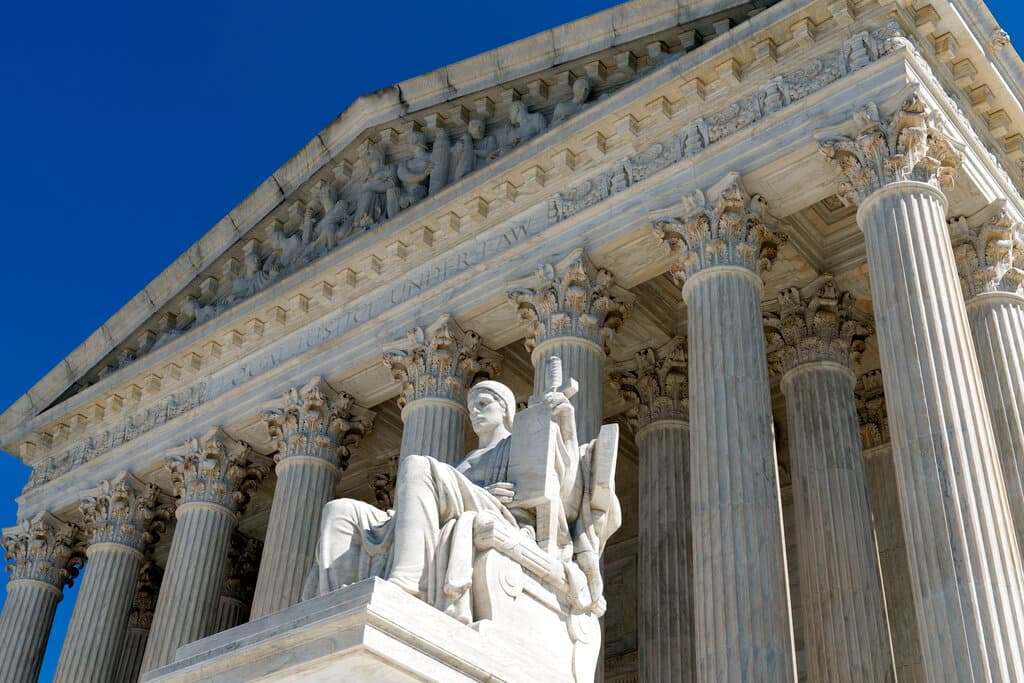Supreme Court Could Rule on the Constitutionality of a Tax on Wealth
In a case concerning repatriation taxes, dozens of conservative third-party groups have weighed in to argue that allowing the tax to stand could pave the way to taxing unrealized gains.

An upcoming Supreme Court case is attracting attention from conservative legal groups who see it as an opportunity for the court to preemptively ban a wealth tax. The dispute, known as Moore v. United States, centers around a relatively obscure federal tax policy, the one-time repatriation tax that is levied on money that American companies make overseas if and when it is brought back into America.
In 2017, the Republican-led House and Senate changed the way that repatriation taxes work via the Tax Cuts and Jobs Act. That measure which slashed the top marginal rate to 15.5 percent for repatriated cash and 8 percent for non-cash repatriated assets from the previous top rate of 35 percent.
A login link has been sent to
Enter your email to read this article.
Get 2 free articles when you subscribe.

